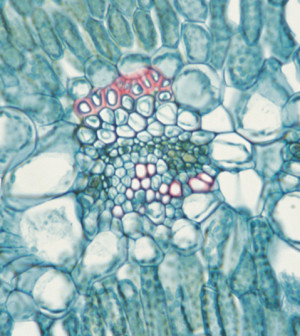- Could Your Grocery Store Meat Be Causing Recurring UTIs?
- Are You Making This Expensive Thermostat Error This Winter?
- Recognizing the Signs of Hypothyroidism
- 10 Strategies to Overcome Insomnia
- Could Artificial Sweeteners Be Aging the Brain Faster?
- Techniques for Soothing Your Nervous System
- Does the Water in Your House Smell Funny? Here’s Why
- Can a Daily Dose of Apple Cider Vinegar Actually Aid Weight Loss?
- 6 Health Beverages That Can Actually Spike Your Blood Sugar
- Treatment Options for Social Anxiety Disorder
Many Early Colon Cancers Linked to Inherited Genes

As many as 1 in 6 colon cancer patients under the age of 50 has genetic traits that greatly boost the risk of cancer, a new study finds.
“The prevalence of hereditary cancer syndromes among early onset colorectal cancer patients including Lynch syndrome, was quite high, which presents a tremendous opportunity for us to save lives through early detection based on genomic risk factor,” lead investigator Heather Hampel said in an Ohio State University news release.
Lynch syndrome is an inherited condition. It increases the rate of many cancers, including colon cancer, according to the U.S. National Library of Medicine.
“It is critical that people find out at a young age if they are genetically predisposed to cancer so they can take steps to prevent cancer from occurring at all,” Hampel said. She’s with the Ohio Colorectal Cancer Prevention Initiative and is a licensed genetic counselor at the Ohio State University Comprehensive Cancer Center.
The study included 450 patients who’d undergone surgery for colon cancer since 2013. All were between 17 and 49 years old.
Researchers found genetic mutations that boost the risk of cancer in 72 patients. Half of these people had Lynch syndrome, the study showed.
The study raises questions about current genetic screening for early onset colon cancer patients.
In about a third of these cases, researchers found that patients were at higher risk of cancer due to their genetics — but these patients wouldn’t have normally been screened under the usual guidelines.
“We expected to find a high rate of Lynch syndrome among these early onset colon cancer patients,” said study first author Rachel Pearlman. She’s the statewide study coordinator at Ohio State.
Pearlman said what surprised the researchers were some of the other gene mutations they found in these young colon cancer patients. For example, they found mutations in genes traditionally linked to breast cancer risk, even in people whose family history didn’t indicate a possibility of those mutations.
“Until multi-gene panel testing, we typically would not have tested a patient with colorectal cancer for mutations in those genes unless they met criteria based on their family history. There is still a lot to learn from these findings,” she said.
The study was published in the Dec. 15 JAMA Oncology.
More information
For more about genetics and other possible causes of colon cancer, try the American Cancer Society.
Source: HealthDay
Copyright © 2026 HealthDay. All rights reserved.










